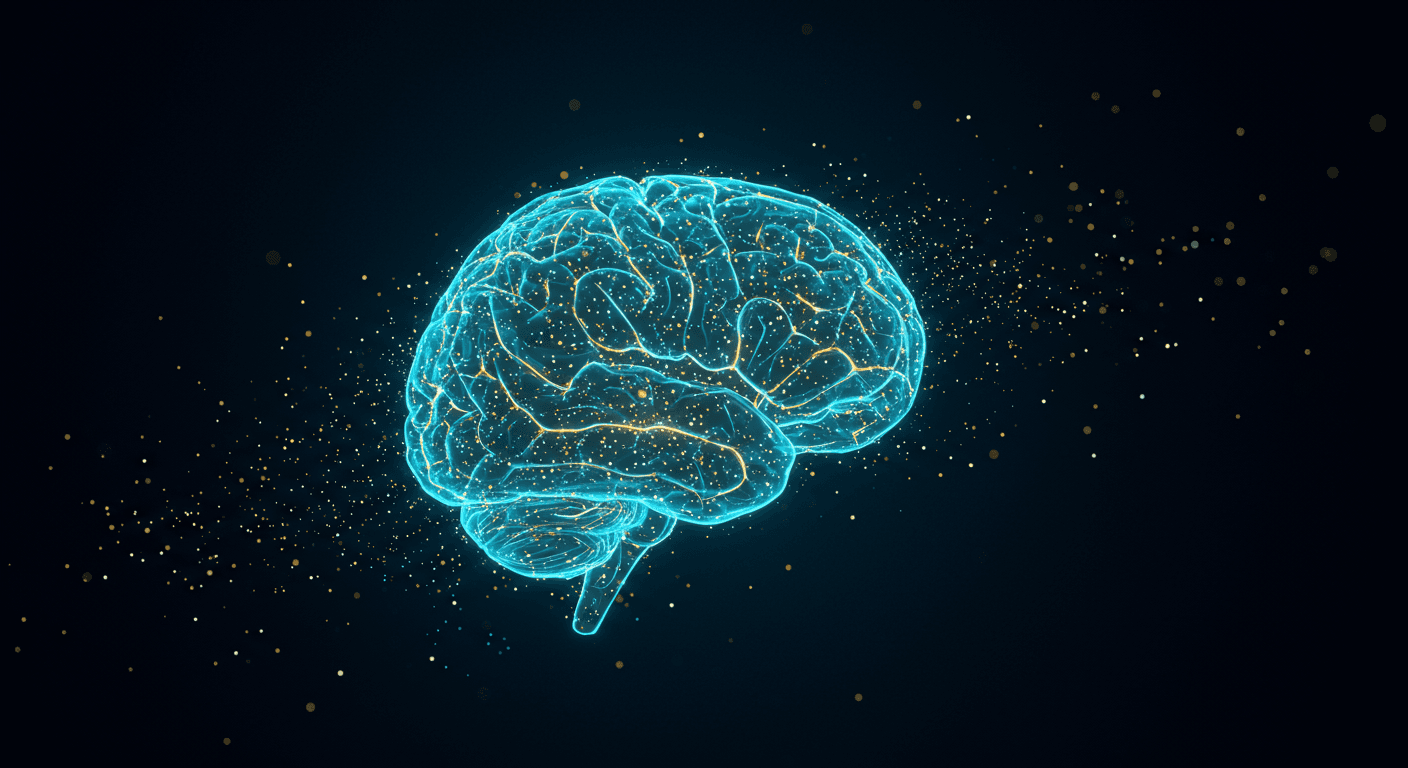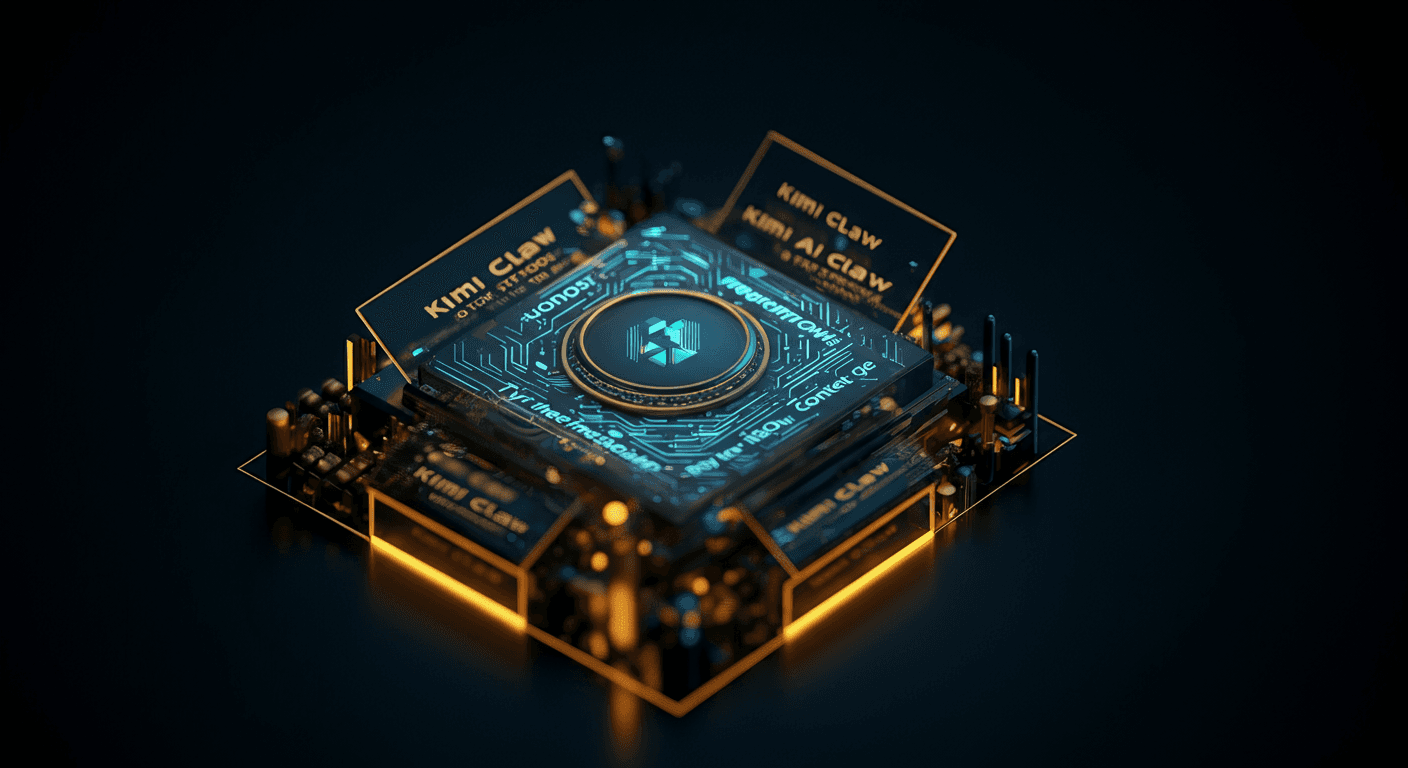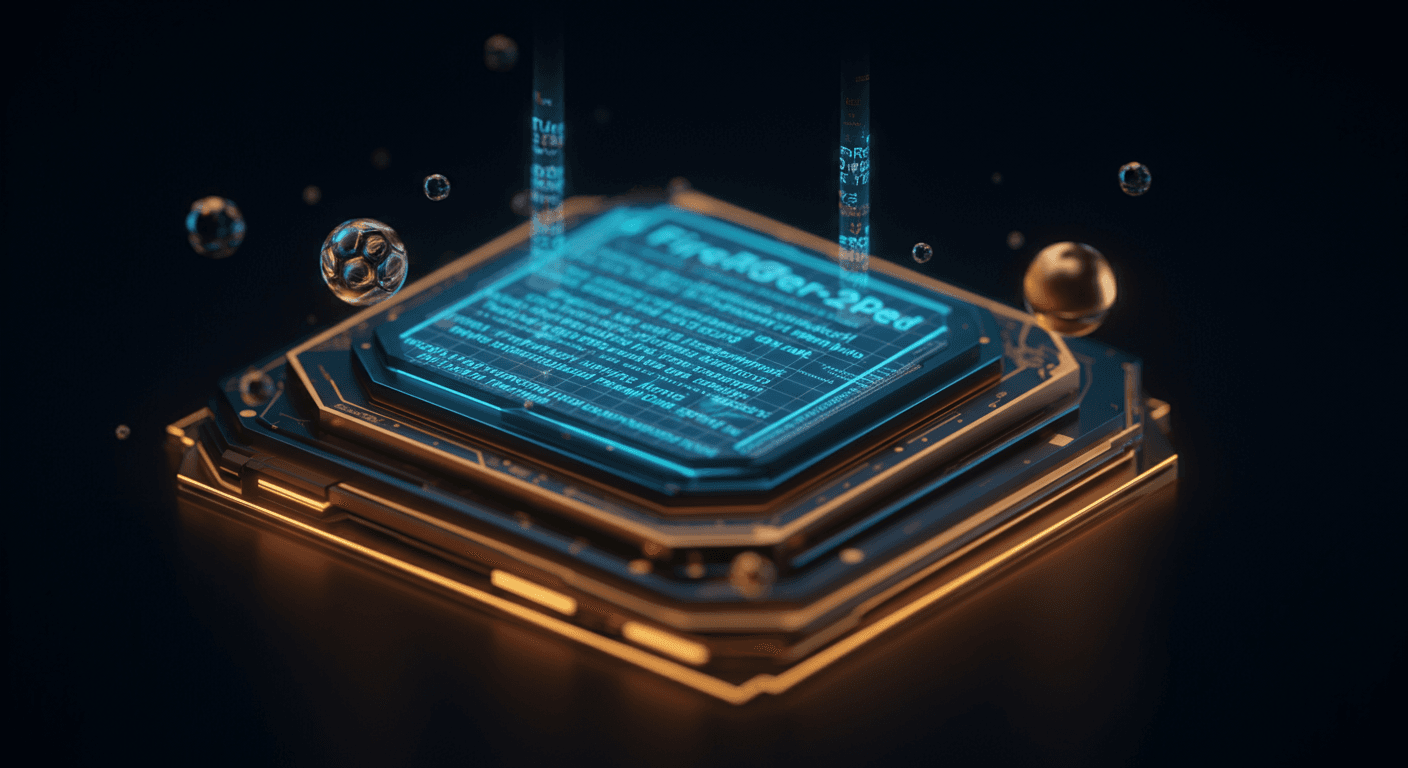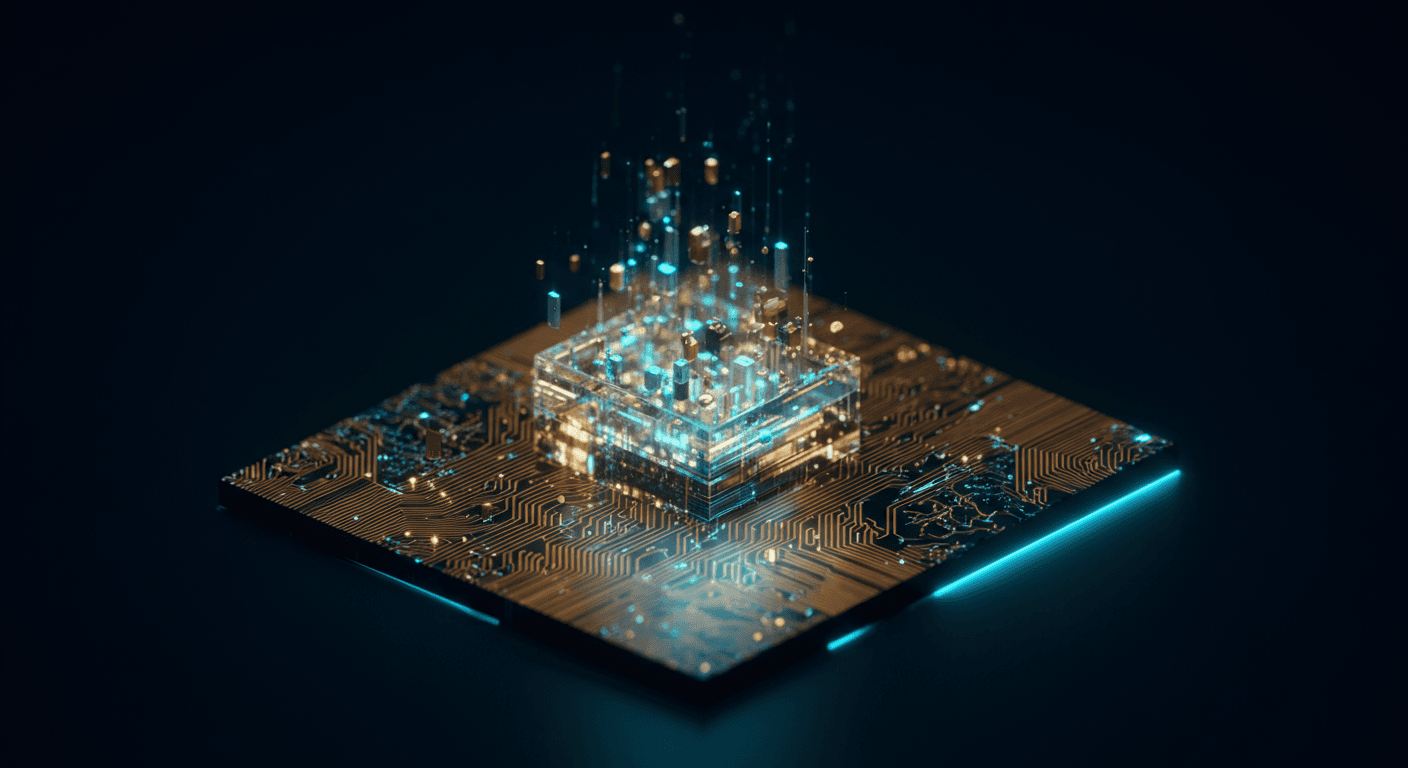AI Brain Models in the ICU: Transforming Intensive Care and Neurological Outcomes

Revolutionizing Intensive Care: The Dawn of AI Brain Models
Imagine a world where AI analyzes brain activity in real-time, predicting seizures before they happen and optimizing treatment strategies instantly. That future is closer than you think with AI enhanced brain monitoring in ICU.
Current Challenges in ICU Neuromonitoring
Traditional ICU neuromonitoring methods, such as EEG and intracranial pressure (ICP) monitoring, face significant limitations:
- Labor-intensive: Continuous EEG requires expert interpretation, often delayed.
- Limited scope: ICP monitoring alone provides a narrow view of overall brain health.
- Invasive procedures: Some techniques increase the risk of infection and complications.
AI to the Rescue

AI Brain Models offer a transformative solution. These models, leveraging machine learning, can:
- Analyze complex data: Integrate multiple data streams (EEG, imaging, vital signs) for a holistic view. Data Analytics AI Tools excel at this.
- Personalize treatment: Optimize interventions based on individual patient profiles and real-time responses.
Decoding the Brain: How AI Algorithms are Trained and Validated
Imagine AI not just crunching numbers, but understanding the intricate language of your brain, offering a lifeline in critical care scenarios. That's the power we're unlocking in ICUs today.
Algorithmic Architects of the Mind
Different types of AI algorithms are used to make sense of neurological data. Deep learning algorithms, particularly convolutional neural networks (CNNs) and recurrent neural networks (RNNs), shine due to their ability to automatically extract complex features from brain scans and time-series data like EEG signals. Think of CNNs as brilliant pattern detectors, ideal for image analysis, while RNNs excel at processing sequences, crucial for understanding brain activity over time. For example, TensorFlow is a popular framework for building these models, letting researchers experiment and fine-tune their approaches.
The Art of the Dataset
Training these algorithms is akin to teaching a child: feed them lots of examples. We use vast datasets consisting of:
- Brain scans (MRI, CT)
- Physiological data (EEG, heart rate)
- Detailed clinical information (patient history, diagnosis)
Validation: Ensuring Accuracy
But learning is only half the battle. Rigorous validation is paramount. We employ techniques such as:
- Cross-validation: Splitting the data into multiple training and testing sets to ensure consistent performance.
- Independent testing sets: Evaluating the AI's performance on completely unseen data.
The journey to create reliable AI brain models is complex, but the potential impact on patient care is profound, marking a new frontier for AI in medicine.
It's no longer science fiction: AI is entering the ICU, promising to revolutionize how we monitor and treat critically ill patients.
Real-Time Neurological Insights
Imagine an AI that can continuously analyze a patient's brain activity, spotting subtle patterns that would be missed by the human eye. These aren't just theoretical musings; AI models are being developed to detect seizures, predict neurological deterioration, and even assess how well a treatment is working – all in real-time. This means clinicians armed with AI driven clinical decision support in ICU can respond faster and more effectively, potentially saving lives and minimizing long-term damage."It's like having a super-specialized neurologist constantly monitoring every patient, 24/7." – Dr. Evelyn Reed, Neurocritical Care Specialist
Empowering Clinicians' Decisions
With AI providing a constant stream of analyzed data, clinicians are better equipped to make informed and timely decisions. No more relying solely on snapshots in time or subjective assessments. Instead, they can leverage AI-powered insights to tailor treatments to the individual patient, optimizing care for the best possible outcome. Need help with software development? Check out the Software Developer Tools.The Ethics of AI in Critical Care
Of course, the integration of AI into critical care isn't without its challenges. We need to be mindful of potential biases in the data used to train these models, ensuring fair and equitable treatment for all patients. Addressing these biases is crucial for responsible innovation in medical AI. For further reading, visit our Learn AI section to explore AI fundamentals.In short, AI brain models in the ICU hold immense potential to transform intensive care and improve neurological outcomes. By empowering clinicians with real-time insights and data-driven decision-making, we can usher in a new era of precision medicine for our most vulnerable patients. Now, let's delve deeper into the specific AI tools making this possible...
AI is poised to revolutionize healthcare, especially for our most vulnerable patients.
The Future is Personalized: Tailoring Treatment with AI Brain Models
Decoding the Individual Brain
AI brain models offer unprecedented opportunities to personalize treatment plans for patients in the ICU. Instead of a one-size-fits-all approach, AI algorithms can analyze individual patient data – think vital signs, imaging scans, and medical history – to create tailored interventions. This is more than just tweaking existing protocols; it's about understanding the unique circumstances of each patient's brain injury. For example, an AI could highlight that ChatGPT, a powerful tool for language understanding, can be adapted to quickly summarize patient medical histories, providing crucial context.AI-Powered Drug Optimization
One of the most exciting applications is AI powered drug optimization. AI can predict the optimal drug dosage for each patient, maximizing therapeutic benefits while minimizing potential side effects. This precision is crucial in the ICU setting, where patients are often on multiple medications and vulnerable to adverse reactions.Imagine: an AI meticulously adjusts dosages based on real-time patient responses, ensuring the perfect balance for recovery.
Predicting Outcomes and Identifying Ideal Candidates

AI can also predict treatment outcomes and identify patients most likely to benefit from specific interventions. This allows clinicians to prioritize resources and allocate treatments effectively, leading to improved neurological outcomes. This is crucial in cases where every second counts. For instance, AI driven tools that analyze data analytics can offer insights for timely medical intervention.
- Predictive models: Help to identify the right intervention for the right patient.
- Optimized resource allocation: Ensures efficient use of limited medical resources.
Implementing AI in the ICU is like upgrading from a trusty abacus to a quantum computer – immense potential, but not without its quirks.
Challenges: Acknowledging the Speed Bumps
Rolling out AI in a critical care environment presents unique challenges:
- Data Privacy: Patient data is incredibly sensitive. Think HIPAA on steroids. We need robust encryption and anonymization techniques. Imagine Privacy Conscious AI Tools designed from the ground up for healthcare.
- Expertise Gap: Not every clinician is a data scientist (nor should they be!). We need to bridge the gap through training and intuitive interfaces.
Overcoming Obstacles: Charting a Course to Adoption
So, how do we smooth the path?
- Collaborative Ecosystems: The ICU of the future requires a partnership between clinicians, engineers, and policymakers. Think agile development meets bedside manner.
- Education & Training: Invest in upskilling healthcare professionals. Resources like AI Fundamentals can provide a solid foundation.
- Standardization and Interoperability: Aim for open standards to enable seamless data exchange between different systems. Avoiding vendor lock-in is key.
- Explainable AI (XAI): Build trust by making AI decision-making transparent. Black boxes don't fly in medicine. Think of XAI as your AI's resume: verifiable and understandable.
The Road Ahead
Overcoming the challenges of AI implementation in healthcare is no small feat. However, by addressing data privacy, navigating regulations, and fostering collaboration, we can unlock AI's transformative potential. Ready to dive deeper? Check out our Learn section for more on practical AI applications.
Beyond the Horizon: Emerging Trends in AI-Driven Neuromonitoring
Just when we thought we'd mapped the brain, AI is giving us a brand-new atlas.
Sophisticated Algorithms & Predictive Power
AI's future in neuromonitoring lies in algorithms so sophisticated, they'll make current methods seem like counting on fingers. We're talking about AI that doesn't just detect a seizure; it predicts it hours in advance, allowing for proactive intervention. Consider this:
- Personalized Treatment: Imagine a system that analyzes a patient's brain activity, genetics, and medical history to tailor treatment in real-time.
- Long-Term Outcome Prediction: AI can sift through mountains of data to predict long-term neurological outcomes with increasing accuracy, aiding critical care decisions. For instance, AI could forecast recovery trajectories after traumatic brain injury, guiding rehabilitation strategies.
Integration is Key
The real magic happens when AI joins forces with other cutting-edge tech. Robotics, virtual reality, brain-computer interfaces – they're all part of the neurological orchestra.
"The future of AI in healthcare isn't about replacement; it's about augmentation."
Take brain-computer interfaces in critical care. Imagine directly translating a patient's thoughts into commands for a ventilator, giving them a voice even when they can't speak. Integration with robotics could enable automated medication delivery based on real-time AI analysis of patient needs.
Societal Echoes & Ethical Considerations
Widespread AI adoption in healthcare isn't just a technological leap; it's a societal shift. We must ensure:
- Equitable Access: AI's benefits must be accessible to all, not just the privileged few.
- Data Privacy: Patient data security is paramount.
- Bias Mitigation: Algorithms must be trained on diverse datasets to avoid perpetuating existing healthcare disparities. For more resources on this see best-ai-tools.org.
It's time to acknowledge that AI is no longer a futuristic fantasy, but a present reality transforming even the most critical corners of healthcare.
Ethical Frameworks: Transparency and Trust
AI algorithms in the ICU need to be more than just efficient; they need to be transparent. Think of it like this: if AI tools for healthcare providers suggest a treatment plan, clinicians must understand why – not just what.
- Explainable AI (XAI): The goal is to demystify AI's "black box," offering clear rationales for decisions.
- Accountability: Who is responsible when an AI makes an error? Clear guidelines are essential. Patient autonomy must always be paramount.
Human-AI Collaboration: The Heart of Care
"Technology can become a powerful tool if used to supplement, not supplant, the human element."
Maintaining the human touch is essential. AI should augment, not replace, the skills and empathy of healthcare professionals. It should handle data analysis and alerting for subtle changes in patient status, freeing up clinicians to focus on direct patient interaction and nuanced decision-making. Tools like ChatGPT can help synthesize information for clinicians.
Navigating Job Displacement: Adapting to a New Landscape
AI's increasing role inevitably raises concerns about job displacement. The solution isn’t resistance, but adaptation.
- Training: Investing in comprehensive training programs will empower healthcare professionals to leverage AI tools effectively. Consider learn/ai-fundamentals for a crash course in AI.
- New Roles: AI will create new roles focused on AI oversight, data analysis, and ethical considerations.
Keywords
AI brain model, AI ICU, AI in intensive care, brain-computer interface, neural networks in healthcare, AI-powered diagnostics, predictive analytics in ICU, AI for brain monitoring, AI brain injury, AI neurological disorders, personalized medicine AI
Hashtags
#AIinHealthcare #BrainAI #ICUInnovation #MedicalAI #NeuroAI
Recommended AI tools
ChatGPT
Conversational AI
AI research, productivity, and conversation—smarter thinking, deeper insights.
Sora
Video Generation
Create stunning, realistic videos & audio from text, images, or video—remix and collaborate with Sora 2, OpenAI’s advanced generative app.
Google Gemini
Conversational AI
Your everyday Google AI assistant for creativity, research, and productivity
Perplexity
Search & Discovery
Clear answers from reliable sources, powered by AI.
Cursor
Code Assistance
The AI code editor that understands your entire codebase
DeepSeek
Conversational AI
Efficient open-weight AI models for advanced reasoning and research
About the Author

Written by
Dr. William Bobos
Dr. William Bobos (known as 'Dr. Bob') is a long-time AI expert focused on practical evaluations of AI tools and frameworks. He frequently tests new releases, reads academic papers, and tracks industry news to translate breakthroughs into real-world use. At Best AI Tools, he curates clear, actionable insights for builders, researchers, and decision-makers.
More from Dr.Was this article helpful?
Found outdated info or have suggestions? Let us know!


